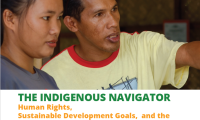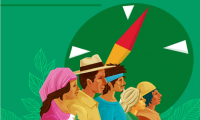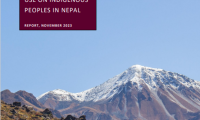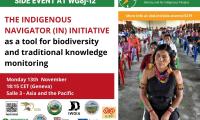Discussion on Community Generated Data to support to realisation of rights!
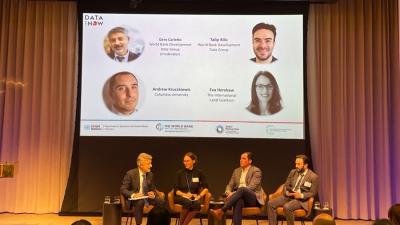
Eva Hershaw, ILC // ALLIED speaks on community generated data and human rights.
On 1 March 2023, Eva Hershaw from the International Land Coalition participated in the high-level side event, "Harnessing data by, for, and about citizens" in the context of the 54th session of the United Nations Statistical Commission held in New York.
The theme of the event was to highlight the crucial need for, and role of, citizen led, community generated data. The event further informed the work of the global statistical community in moving towards a framework to harness data by citizens, for citizens and about citizens; and seek opportunities for collaboration with partners at the national, regional and international level; and from different data communities.
Citizens’ contribution to data, broadly defined as citizens’ engagement in multiple processes in the data value chain, is increasingly being recognized for its unique ability to help overcome many challenges and gaps in official data. Community generated data (CGD) can play a critical role in contributing to and ensuring the inclusiveness of official statistics.
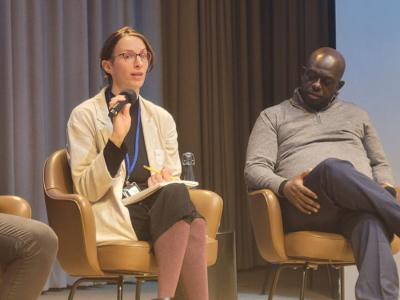
Collecting data to understand how Indigenous Peoples and other groups experience land rights, for example, is about citizens having the tools and being empowered to use data to make sure they feel seen and can engage in conversation.
Despite repeated calls for disaggregated data, the world continues to lack the full picture of the marginalisation and discrimination against Indigenous Peoples. This lack of data means that Indigenous Peoples are often left behind when general development trends in a country do not take into consideration their unique socioeconomic and political circumstances. Further they face intersectional threats of racism, discrimination and marginalisation which impact their rights and lives and cannot be adequately addressed or measured due to lack of disaggregation.
This production of data on their situation is a key tool in the fight for Indigenous Peoples’ to secure their rights. However, as the human rights-based approach to development has shown, if these data are not integrated into official statistics, and there remain no disaggregated data on Indigenous Peoples, they will remain invisible, their rights will continue to be disregarded and they will be left behind. As a result, there is a clear and urgent call for Indigenous-led community generated data to supplement missing official data, and to uncover the realities of Indigenous Peoples and communities around the globe.
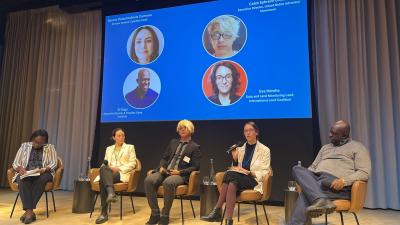
Citizens’ contribution to data happens at various levels – global, regional, national, and local. Through the Indigenous Navigator, and synergistic platforms like LANDex and ALLIED, scientists, community leaders, civil society organisations (CSOs), Indigenous, Land and Environment defenders and individual citizens can collect and generate high-quality, verifiable data which contribute to various stages of the data value chain and supplement official statistics being generated by national statistical offices and agencies.
When people—especially those who have been historically excluded from decision making—actively participate in decisions about data collection, design, analysis, and use, they gain greater access to the benefits of data. The official statistical community increasingly recognizes the importance of non-state actors in contributing to the inclusiveness of official statistics.
As a member of the ALLIED coalition, Eva consulted with the Indigenous Navigator’s consortium, and highlighted the critical role that community generated data can play, not only in securing land rights more broadly, but particularly how Indigenous Peoples are generating key information about their realities and mobilising that data to support statistics offices around the globe.
The UNSD meeting on CGD served as a platform to present evidence that citizen-driven data can contribute to more meaningful and inclusive bodies of data at the national level. We're hopeful that this momentum -- and mandate by UNSD to engage CGD -- represents the beginning of a trust-building and learning exercise that can facilitate further recognition and uptake of community and citizen-led monitoring initiatives.” – Eva Hershaw, ILC // ALLIED
Engagement at the UNSC 54th session was coordinated by the Danish Institute for Human Rights, International Land Coalition, and the International Work Group for Indigenous Affairs.


Contact
Carol Rask

